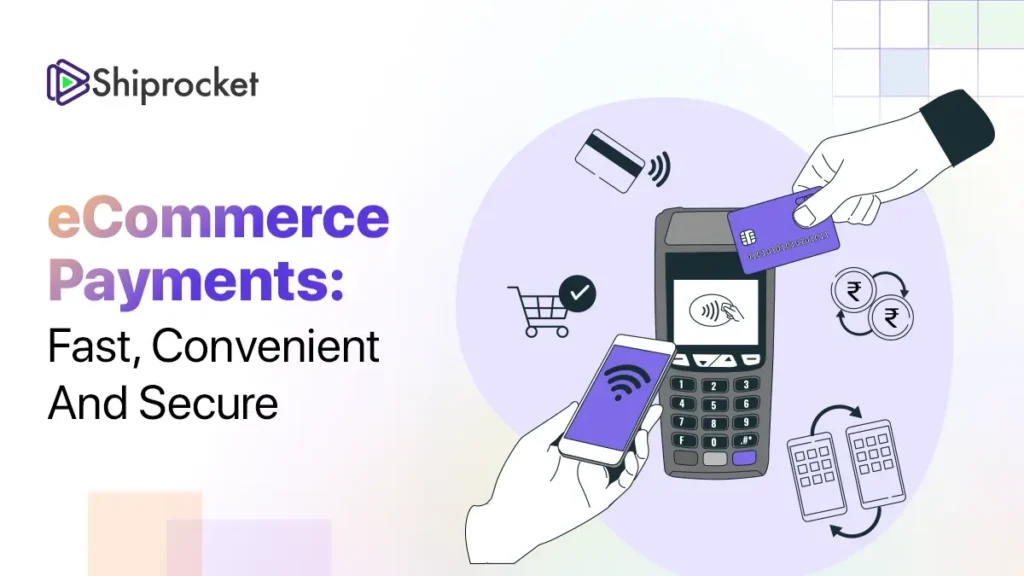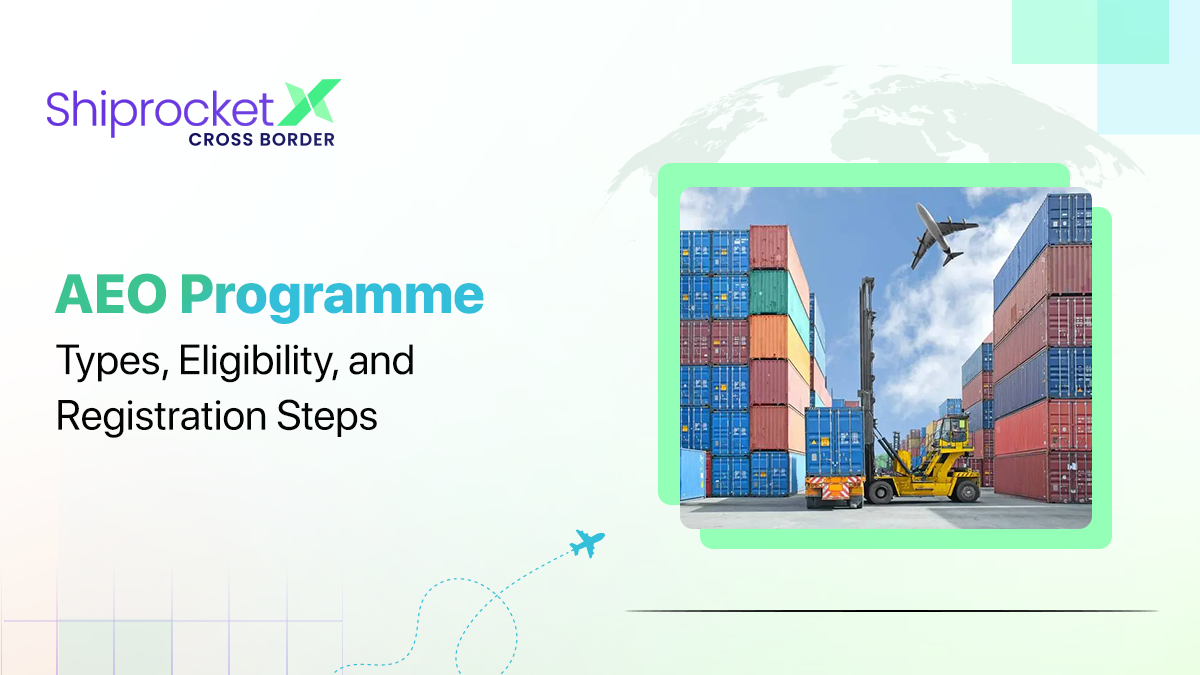eCommerce Payment Systems: Types, Components, & Advantages
Recent years have seen an increasing adoption of digital payments and eCommerce payment systems, with UPI transactions leading the way. It goes without saying that businesses, both online and offline, have seen a surge in online transactions starting from the pandemic times. This digital shift has changed not only how Indian customers make payments but also the entire payment landscape. Indian customer’s paradigm change in preferences and behaviour is so massive that the total transaction value of the online payments market is expected to reach USD 321.70 billion by 2027, growing at a CAGR of 15.56%. Let’s take a look at the different types of eCommerce payment systems.

Different Types of eCommerce Payment Systems
Here are the different types of payment methods that can be used on eCommerce websites
1. Credit and Debit Cards
Credit and debit card payments are two such methods that are accepted globally across all eCommerce platforms. As the name suggests, in credit cards, users do not have to make payments on the spot and can instead pay according to their billing cycle. For debit card users, the benefit lies in the fact that when making any payment, the amount gets deducted directly from their bank account without incurring any interest or hassles of paying through cash. The following table shows the volume and value of credit and debit cards used in 2022.
| Type | Volume (in billions) | Value (in INR trillion) |
|---|---|---|
| Credit Card Transactions | 2.76 | 13.12 |
| Debit Card Transactions | 3.64 | 7.4 |
2. E-Wallets or Digital Wallets
E-wallets or digital wallets are different from physical wallets. Customers can make payments using e-wallets from any device by connecting them to the device. E-wallets safely store your customer’s payment and other financial details in the cloud. The Global Payments Report 2022 revealed that digital wallets are likely to account for more than 72% of regional eCommerce transactions in 2025.
3. Net Banking
Net banking enables customers to make payments online directly from their bank accounts. All the user needs to do is log into their bank account through an online platform or application and enter the dealer’s bank account details to make the transfer.
4. Prepaid Cards
Prepaid cards are similar to debit cards. A sum is added to the cards, which can be used to make online payments. They can also be used in ATMs to withdraw cash. According to the India Digital Payments Annual Report, payment modes like UPI, debit and credit cards, and prepaid cards processed 87.92 billion transactions worth INR 149.5 trillion.
5. UPI and Mobile Payments
Mobile payments can be made with mobile or tablet devices via applications like Paytm, GooglePay, PhonePe, etc. As per a report, UPI recorded over 74.05 billion transactions in volume and INR 126 trillion in terms of value. It’s a 91% increase in volume and over 76% increase in value in 2022 compared to 2021. A survey of 2,519 Indian customers revealed that Google Pay has taken the spot for the most used online payments by brands in 2023.
Components of e-Payment Processing
The different components of processing an e-payment include:
- Supporting versatile flow: The payment providers are expected to offer flexibility in the flows of a payment. It includes seamless integration and non-seamless integration. In seamless integration, customers are hosted by the merchant on the checkout page. In non-seamless integration, the customer is redirected to the aggregated payment page.
- Integration with eCommerce platforms: Most merchants use platforms like Shopify, and they expect payment providers to offer plugins that are customised to these platforms. The plugins are responsible for simplification of the integration process while ensuring compatibility with the seller’s platform.
- Scalability: When there is a peak shopping time or during sales promotions, the number of transactions occurring can spike. The payment systems must be capable of handling these increases with the same efficiency and enhance customer experience. Scalability becomes a vital factor when choosing a payment system, as increased processing and load can hinder gains if the system is unable to handle it.
- User Experience: Offer a simple checkout process by minimising the number of steps involved for a better user experience.
- Error Handling: Implementing an effective error-handling mechanism is essential for maintaining positive customer relationships. Give them clear and informative error messages and guide them on how to resolve the error.
- Fraud Prevention: It becomes essential for an eCommerce platform to encrypt its fee mode and compare its monetary information once in a while to prevent any fraud.
How is a Transaction Initiated and Completed in an e-payment Method?
There are 2 varieties of electronic payments: one-time and recurring. Follow the steps below to make a successful e-bill:
- Payment Initiation: To begin with, the client receives to select from unique payment options.
- Authentication Check: All the details submitted by the customer, such as card numbers, UPI ID, bank account information, and so on, are evaluated for real accuracy.
- Settlement of the price: Upon authentication, the transaction is processed, and the price range shall be transferred successfully into the vendor’s account via the electronic fee issuer.
Characteristics of a Good eCommerce Payment System
The characteristics of a good Internet payment system are given below:
- Automated and quick payment processing
- Reliable
- Secure
- Multiple device compatibility
- Optimised checkout page
- Easy-to-use
- Multiple payment options
Advantages of an e-Payment System
An e-Payment System comes with the following perks:
- Reaches a wide customer base
- Higher conversion rates and lower cart abandonment.
- Stringent security standards
- Fast and efficient error resolution
- Simple and better buying experience for all consumers.
Conclusion
In a slowly transforming world, understanding the need to keep up in this fast-moving digital landscape is crucial. With e-payment systems, your eCommerce business is one step closer to keeping up and growing with time. eCommerce payment systems are a robust and innovative payment platform that has the power to transform eCommerce businesses. Furthermore, these help eCommerce businesses maintain cash flow and operate seamlessly.
The role of eCommerce payment systems will only become more prominent. The adoption of e-payment systems to streamline transactions can help any business scale, grow, and complete orders more successfully. They can also achieve greater customer satisfaction and engage in diverse and global markets. In the future, eCommerce payment systems are more likely to be highly secure and seamless.
The best payment method for your eCommerce business will depend on a number of factors, including your target audience, the nature of the products and services you offer, and the geographical distribution of your audience.
The eCommerce payment process involves different elements. These are payment gateways, payment processors, merchant accounts, regulatory compliances, security standards for data and privacy, fraud prevention measures, etc.
There are a number of risks associated with e-commerce payment systems. The major ones are fraud, identity theft, security breaches, credit card hacks, limited consumer protection, and more.






